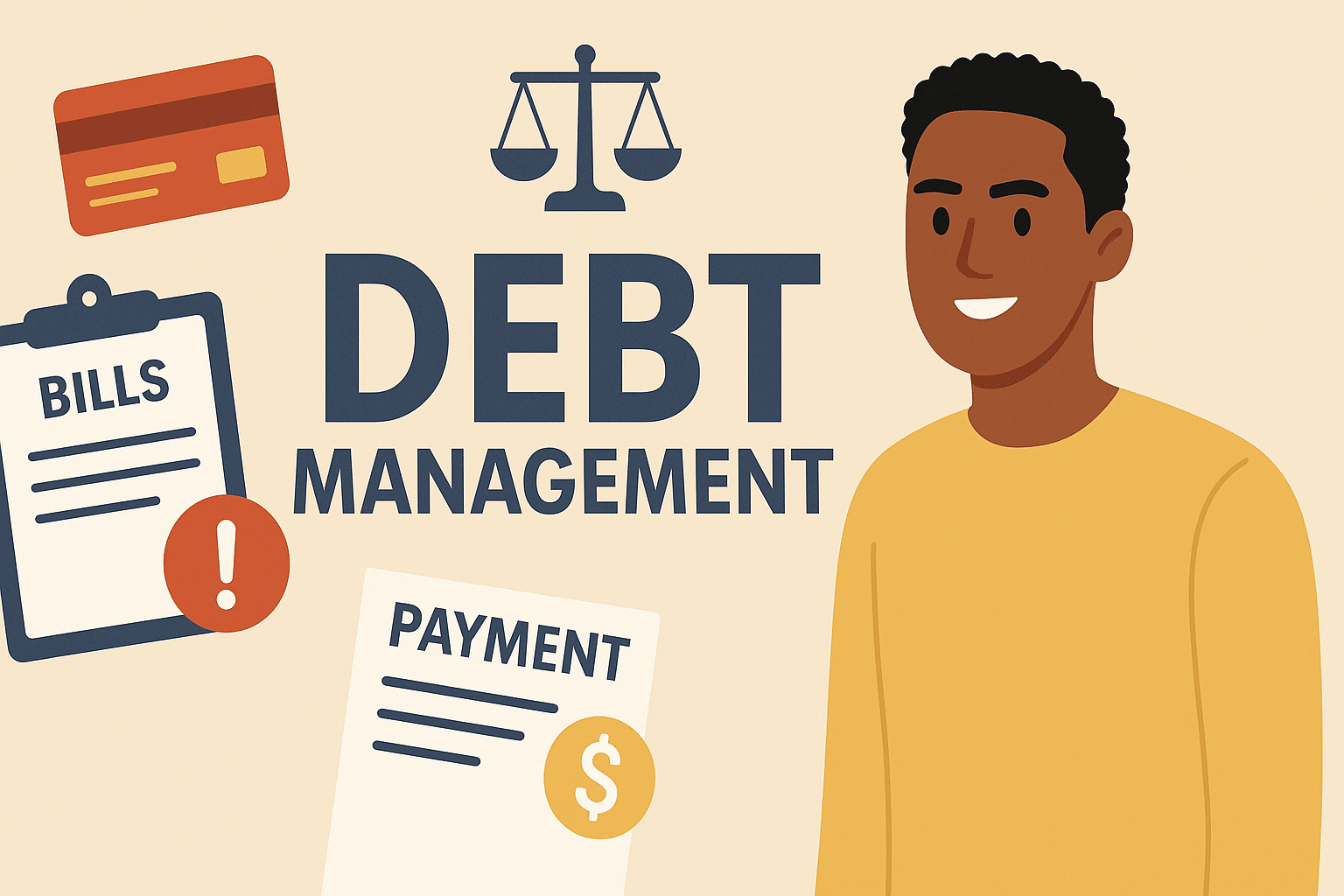Debt Management: Understanding South African Perspective

Ever wondered what debt looks like on the other side of the world?
You’re not alone.
Whether you’re buried in credit card payments or just curious about how people in other countries handle their money, understanding global debt patterns can offer surprising insights.
Let’s take a trip to South Africa — a country rich in culture, contrast, and some serious lessons in money management.
In this article, we’ll dive into debt management, unpack cultural and economic differences, and explore practical budgeting tips, savings strategies, and even a bit on retirement planning.
Yes, all through a South African lens — and with a few gems that may just help you with your own financial goals in the U.S.
The Debt Landscape in South Africa
South Africa is a fascinating case study when it comes to personal finance.
Like the U.S., many South Africans rely on credit. But here’s the kicker — over 70% of their disposable income often goes to servicing debt. Yikes.
The main culprits?
- Credit cards
- Store accounts
- Personal loans
- And in many cases, unsecured lending with high interest rates
Sound familiar?
The difference is that South Africa has a much smaller middle class and a far higher unemployment rate. So debt isn’t just about lifestyle — it’s often about survival.
Why Should Americans Care?
Because debt knows no borders.
The emotions, the stress, the “I’ll just deal with it next month” attitude — it’s the same everywhere.
By looking at how South Africans tackle these issues, we can zoom out and see what strategies work across cultures. Some might even help you take control of your own money story.
Plus, let’s be honest — seeing financial challenges from another perspective sometimes makes our own mess feel a little more manageable.
You may also like: Creating a Budget That Works for You in South Africa
The Root of the Problem: Cultural & Economic Mix
Debt in South Africa is not just financial — it’s deeply social.
There’s pressure to support extended families, known as the “black tax.” That means once someone lands a job, they’re often helping siblings, cousins, or even parents financially.
On top of that, the rise of consumerism (yes, Instagram is global!) drives many to spend beyond their means.
The result? A cycle of borrowing just to keep up — not just with the Joneses, but with entire families.
So what can we learn from this?
It’s not always about cutting back. Sometimes, effective debt management starts with setting boundaries and shifting mindsets.
Budgeting Tips That Work (Yes, Even for You!)
South Africans have gotten creative when it comes to managing tight budgets.
Here are some smart, no-nonsense budgeting tips inspired by real South African households — and totally doable in the U.S.
-
Cash Envelopes Aren’t Dead
Even in the era of Apple Pay, many South Africans still budget with actual cash. They split money into envelopes marked: groceries, transport, airtime, etc.
Try this with categories like dining out or entertainment. Once the envelope is empty — that’s it. No swiping. No overdraft.
-
The 70/20/10 Rule
A common approach:
- 70% of income for needs
- 20% for savings strategies and investments
- 10% for giving (charity or family support)
It’s simple, flexible, and focuses first on responsibilities.
-
Prioritize High-Interest Debt
This one’s universal. Knock out the most expensive debt first (usually credit cards). South Africans often tackle store cards first because the interest rates are sky-high.
Start with one — build momentum — then roll that payment into the next debt.
Debt Management: The South African Hustle
In South Africa, you don’t just have one job.
You hustle.
From selling handmade crafts to running weekend car washes or tutoring kids in math — side gigs are survival tools.
If you’re drowning in debt, consider adopting this entrepreneurial mindset. Could your hobbies generate income? Could your weekends work harder for you?
And if you already have a side hustle? Perfect. Channel that income into your debt management plan.
Let’s Talk Savings — Yes, Even With Debt
One of the most admirable things in South African culture is the emphasis on community savings.
They use something called a “stokvel.”
It’s a group savings club where members contribute monthly and take turns receiving a lump sum. It’s based on trust, community, and consistency.
While not common in the U.S., you can replicate the idea.
Start a savings accountability group with friends. Set a shared goal — like $5/day or $150/month. Check in weekly. Celebrate wins.
Community brings discipline.
Retirement Planning in South Africa — Lessons in Long-Term Thinking

Here’s the twist — many South Africans don’t have access to formal retirement funds.
So, they’ve become creative about building wealth in other ways:
- Investing in rental property
- Starting small businesses
- Leaning on family networks
The lesson? Don’t wait for the “perfect” retirement plan. Start with what you have.
Even small, consistent contributions to a Roth IRA, 401(k), or basic investment account can set your future self up better.
Use retirement planning as a way to break free from the cycle of debt — not a luxury to delay until later.
Mindset Shifts We Can All Use
Sometimes, the biggest obstacle to financial freedom isn’t money — it’s mindset.
Here are a few mindset shifts inspired by South African resilience and wisdom that can help you take control of your finances:
-
You Are Not Your Debt
Debt doesn’t define you.
In many South African communities, people are burdened by debt management due to systemic challenges, but they continue to persevere with hope and tenacity. This mindset can be life-changing. Instead of attaching guilt or shame to your debt, start seeing it as something external — a challenge to overcome, not a personal failure.
When you emotionally detach from debt, it becomes easier to face it head-on and create a plan.
-
Progress Over Perfection
Many people delay financial action because they feel overwhelmed. “I’ll start saving when I make more money” or “I’ll budget when things settle down.”
But here’s the truth: there’s no perfect time to start.
People in Personal finance South Africa often begin with what they have — even if it’s small. They may save just a few rands or pay off R50 at a time. That’s still progress. And that principle applies anywhere, including the U.S.
Your budgeting tips don’t have to be elaborate. Your savings strategies don’t have to be perfect. Just start.
-
Community Is a Financial Resource
In South Africa, people rely on each other to manage expenses, save money, and stay accountable — like in stokvels and family support systems.
The Western mindset often values financial independence, but sometimes, leaning on others is exactly what you need.
Talk to your friends or family about financial goals. Join or start a money accountability group. Learn from others and share your wins and struggles. That sense of community can drive consistency, especially when working on debt management or building strong savings strategies.
-
Celebrate Small Wins
Paying off one credit card. Saving your first $100. Saying “no” to a non-essential purchase.
These might seem small, but in the long run, they’re massive wins.
In Personal finance South Africa, people often celebrate financial milestones — even modest ones. Why? Because every step forward matters, especially when you’re starting from a tough place.
-
Your Future Self Is Counting on You
This one’s powerful.
When you think about your future — your health, your family, your peace of mind — what kind of life do you imagine?
Every decision you make today impacts that vision. Whether it’s sticking to a budget, avoiding a new loan, or contributing $25 to a retirement fund — it matters.
People in South Africa, where retirement planning resources may be limited, often get creative to secure their future. From buying livestock to investing in community co-ops, the goal is always the same: a dignified life later.
If they can do that with fewer resources, imagine what’s possible for you.
Make it a habit to ask yourself:
“Will this financial decision serve me tomorrow?”
You may also like: Interactive budgeting calculators and debt repayment planners
Real Talk: What Would You Do Differently?

Imagine if every time you made a financial decision, you asked:
“Would I still do this if I had to tell my future self about it in five years?”
Simple. But powerful.
South Africans are learning the hard way that debt management is not just about numbers — it’s about behavior. And so are we.
The Takeaway
Personal finance South Africa might look different in currency, but the core emotions and challenges are the same.
By looking at how others navigate their financial journeys — with grit, creativity, and community — we get inspired to clean up our own.
Remember:
- Budgeting tips don’t have to be complicated
- Debt management is a long game, not a one-time fix
- Savings strategies work best when shared and sustained
- Retirement planning starts now, no matter how small
You’ve got this. Just take the next step.
And maybe, just maybe — keep a little South African spirit in your wallet while you’re at it.
FAQs
- What is the biggest financial challenge in South Africa?
The biggest challenge is high personal debt combined with low income levels. Many South Africans support extended families, which stretches finances thin.
- Can I apply the South African envelope budgeting system in the U.S.?
Absolutely. Cash envelope budgeting works globally. It helps you control spending by making money feel more tangible.
- What is a stokvel, and can I try it here?
A stokvel is a group savings plan where members contribute regularly and take turns receiving a lump sum. While informal, the concept can be used among trusted friends or family in the U.S.
- How do South Africans save for retirement without formal plans?
Many invest in property, start side businesses, or use family networks for support. The focus is on building long-term value with what’s available.
- What’s the first step in better debt management?
Start by listing all your debts, ranking them by interest rate, and creating a simple plan. Even small extra payments toward high-interest debt can make a big difference over time.





